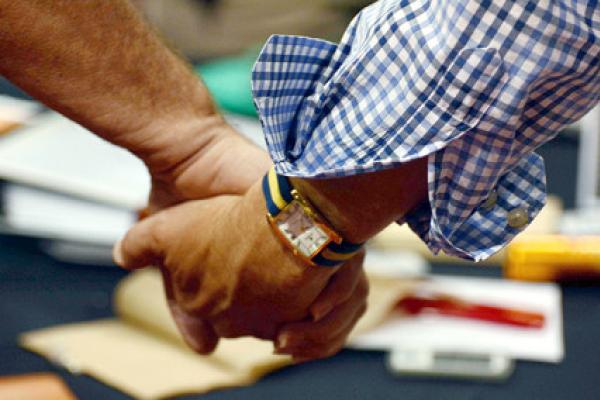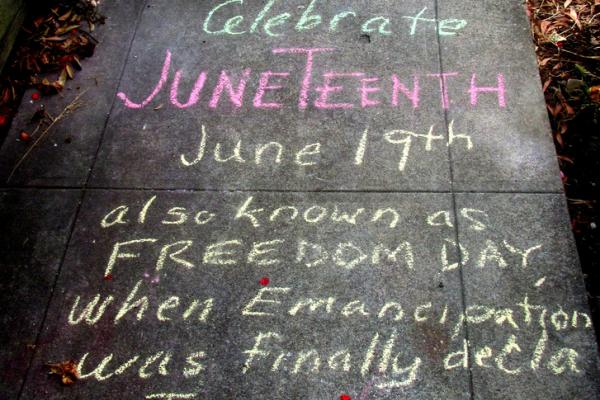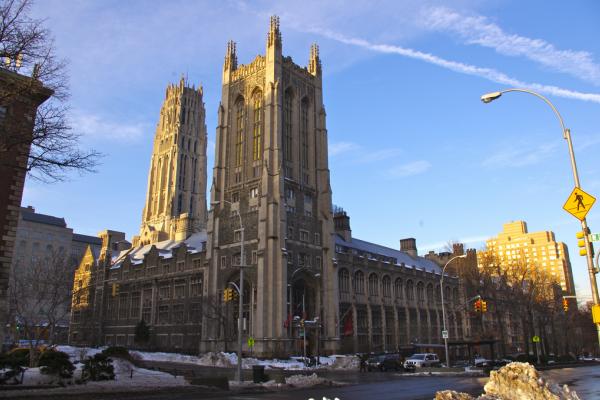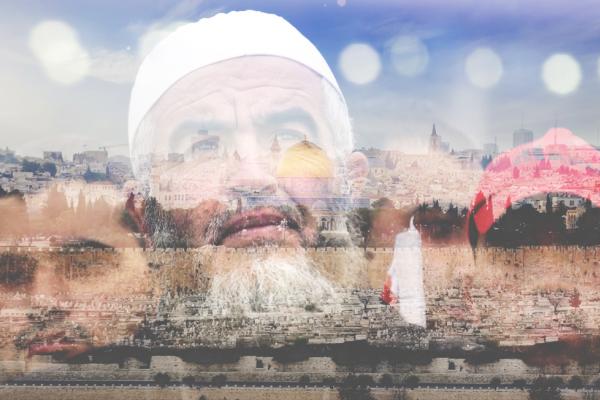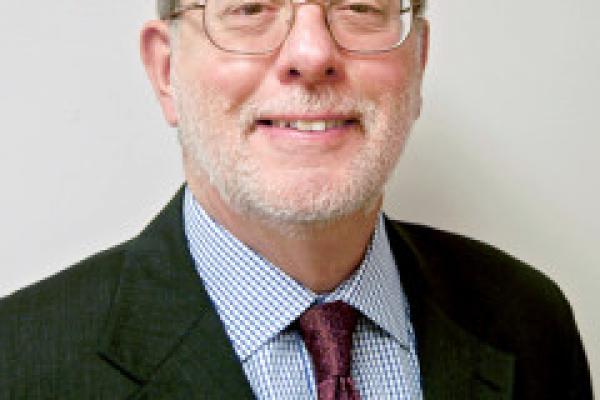The quaint Pillar Church sits directly across the street from Hope College in Holland, Mich. — the first congregation established by a wave of Dutch immigrants to the area. When I enrolled at Hope in 1963, all I knew was that virtually no students went to Pillar Church.
A half century later, the story of Pillar Church tells a much larger narrative of the long and arduous journey toward authentic Christian unity.
Pillar Church and Hope College were both founded as part of the Reformed Church in America, a denomination formed by Dutch settlers to New Amsterdam (we now call it New York City) in 1628. A later wave of Dutch immigrants settled in the Midwest, particularly western Michigan. Some of them broke away and established the Christian Reformed Church in North America in 1857.
From its founding, Pillar Church had been a member of the RCA. But in 1882, a group siding with the emerging CRC seized the church building, locked its doors with chains, and, grasping axe handles, defended it against their fellow congregants. From then on, Pillar Church was a CRC congregation, and it became essentially foreign territory to those of us at the RCA-affiliated school across the street.
One would think that sharply defined theological differences among Reformed Protestants — who are famous for their theological exactitude — would have been the cause of such a dramatic intra-ethnic split. But no.
Sometimes it is hard to know even where to begin. We stare at this System, this complex web of human behaviors, and the institutions erected to memorialize them, and we simply do not know where to begin. How do we fix it?
"That's just the way it is," we say. "Some things will never change."
Systems are strange beasts. They take incredible human investment to maintain. They are the spaces by which many of us come to know ourselves, to know our place in this world. We identify ourselves in relationship to them. And yet they are so close to us as to be rendered invisible.
Until they hurt us. Until they step on us, exclude us, enslave us, brutalize us.
And this is when it gets interesting, of course; this is when they do their real work, these systems.
If you made a short list of the issues the American church doesn’t talk about from the pulpit, you’d probably find sexual and domestic violence topping out the list.
According to a recent LifeWay Research poll of 1,000 Protestant pastors, 74 percent misjudge how prevalent sexual and domestic violence was within their congregations. Two out of three pastors reported delivering a sermon once a year (or less) on the issue. And although 72 percent of pastors speak out on the issue because they believe sexual and domestic violence is a problem in their local communities, only 25 percent do so because they perceive it to be a problem in their congregations. The poll was conducted on behalf of Sojourners and IMA World Health and the full report can be found here.

Last week, Serene Jones, president of Union Theological Seminary, announced that the school is divesting its endowment of fossil fuels. It is the first seminary in the world to do so, marking Union’s latest action in a long legacy of social justice commitments.
So what? Well, it helps to look at this news in context.
Through my work with The Global Immersion Project, I have spent a significant amount of time over the years cultivating relationships among both Israelis and Palestinians as we partner together in cultivating a narrative of reconciliation. As is often the case when we approach a people or place with the hopes of being/bringing the needed change, I have been the one most changed by my friends and colleagues who reside in the Middle East. Behind so many of the subconscious stereotypes and prejudices I had acquired earlier in my life I began to experience the richness of friendship and brotherhood among people I had previously “known” only through the latest sound bite.
Something I have learned in the classroom of real life relationships with Jews, Christians, and Muslims in the Holy Land is that our theology in the West has direct implications for the everyday lives of those in the Middle East. Often ignoring the remarkable movements of peacemaking, reconciliation, and collaboration that are sprouting like mustard seeds of hope across the Holy Land, we often choose only to amplify of the violence, discord, and disintegration of the region.
When I share the story of how brutal the path to citizenship is for us, people are often shocked. We are not what people have in mind when they think of ‘immigrants.’ We are white. We speak English. We have graduate level degrees. And yet even for us, as documented workers, it sometimes seems nearly impossible that we will be able to gain permanent residency. The path is so much narrower and steeper than people realize, so we speak up.
I speak up because I would love legal residency to be more easily within our reach. As a mom, it would give me so much peace of mind to know we could continue to build a life in the U.S. with our children. But mostly, I speak up because I can. As a legal immigrant, I have a first-hand perspective on just how harsh the current legislation can be, and I also have the freedom to speak about it without fear of being deported.
And so I speak and write in favor of equitable and reasonable immigration reform. I believe it is the right thing to do ethically, and it is the wise thing to do socially and economically. However, whenever I raise the issue I am met with this response: “We’re not objecting to you — because you got here legally and have obeyed all the laws. We are objecting to all the law-breakers who are here illegally: if they disrespected the law, they should not be rewarded for it!”
After an unusual six-week lapse in executions in the nation since a botched effort in Oklahoma on April 29, two men could face lethal-injection deaths in Georgia and Missouri Tuesday night or early Wednesday.
Wellons, 59, was sentenced to death for the 1989 rape and murder of 15-year-old India Roberts, whom he abducted as she was on her way to a school bus.
At 12:01 a.m. Wednesday, Missouri is preparing to execute John Winfield, who blinded the mother of his two children and killed two other women in a 1996 shooting spree. A judge on Thursday issued a stay of execution, but prosecutors are seeking to have it lifted in time for Winfield’s execution to proceed.
A third inmate, in Florida, is slated to be put to death Wednesday evening.
Christian and Muslim leaders united Tuesday to demand government action after a deadly terror attack in Kenya’s coastal region.
The gunmen held the town hostage for more than four hours, burning houses, hotels, and banks, and even attacking the local police station.
The Islamic militant group al-Shabaab said it executed the attack as revenge for the Kenyan army’s presence in Somalia, the killing of Muslim scholars in the coastal region and the oppression of Muslims.
The government has since said this was not an al-Shabaab attack but was carried out by a gang paid by politicians.
Right-wing politicians are fond of saying we need more Christian influence in American political life.
I don’t disagree with that. But I wonder if they have any idea what they are asking. For a nation guided by Christian principles would bear scant resemblance to their political agenda.
Take immigration, for example. Jesus practiced radical welcome, not the restrictive legalistic barriers envisioned by conservatives, and certainly not the denigration of dark-skinned immigrants and the unleashing of armed posses along the Rio Grande.
God’s people, after all, began as immigrants and refugees. God saw them as a “beacon” to all nations.
Nine days after my Dad’s memorial service on June 7, I am still in Detroit.
I am still in Detroit to volunteer as a member of the More Light Presbyterians communications team at the 221st General Assembly of the Presbyterian Church (USA).
I am still in Detroit because, for the better part of three decades, my father was an active member of the progressive movements within PCUSA for affirmation and inclusion, for peace with justice.
I am still in Detroit because my dear friends who got married on my former land in rural Tennessee could not have their vows acknowledged by church or state because they are both men.
